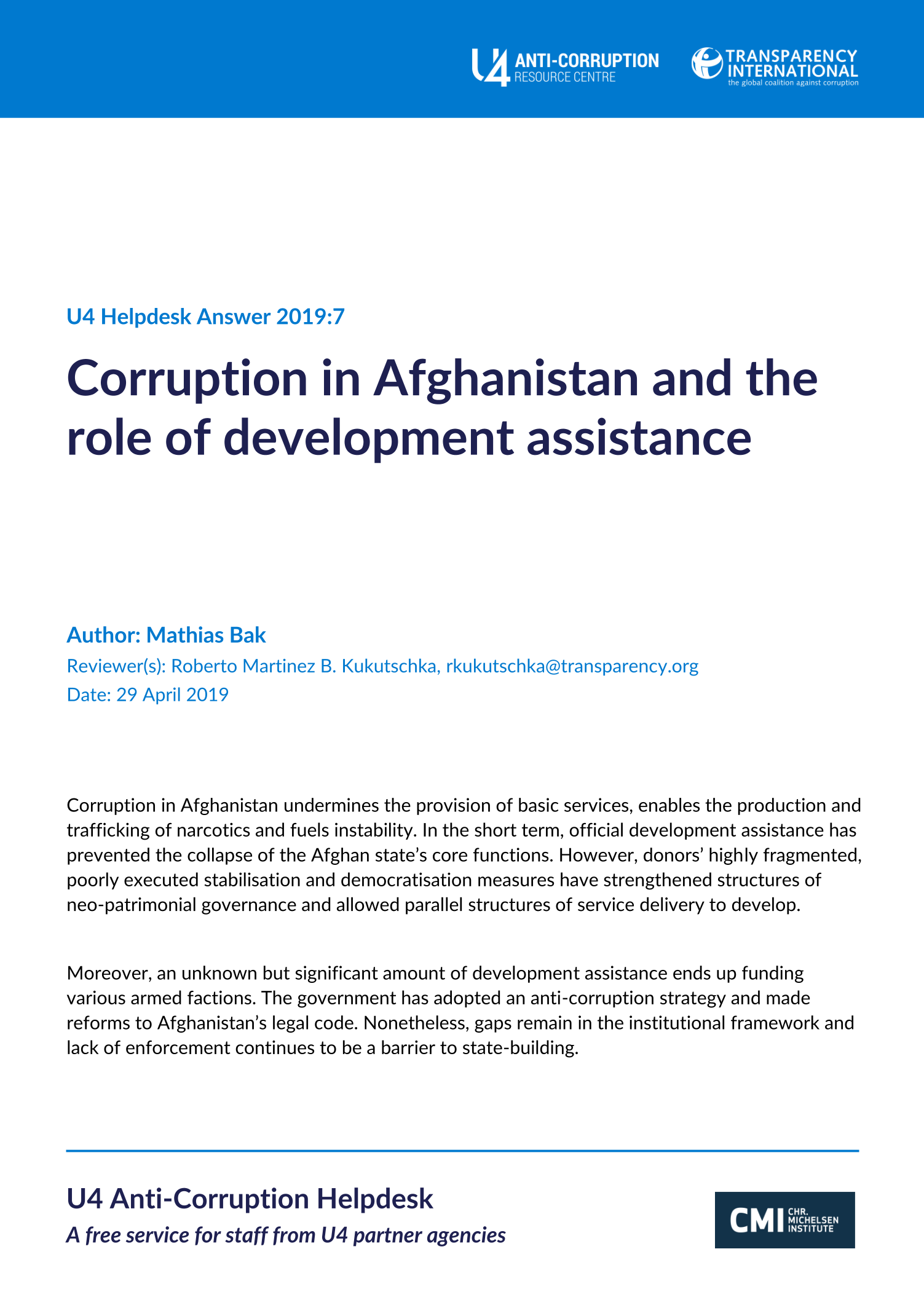Main points
- Endemic levels of corruption undermines the Afghan state-building project and corruption has become a driver of conflict in Afghanistan.
- Generally, the engagement of donors in Afghanistan has been characterised by weak coordination and inadequate oversight mechanisms. This has created a larger space for errors in development cooperation with Afghanistan.
- As a result of these issues, aid inflows have likely contributed to corruption, incentivised state capture and weakened state capacity.




